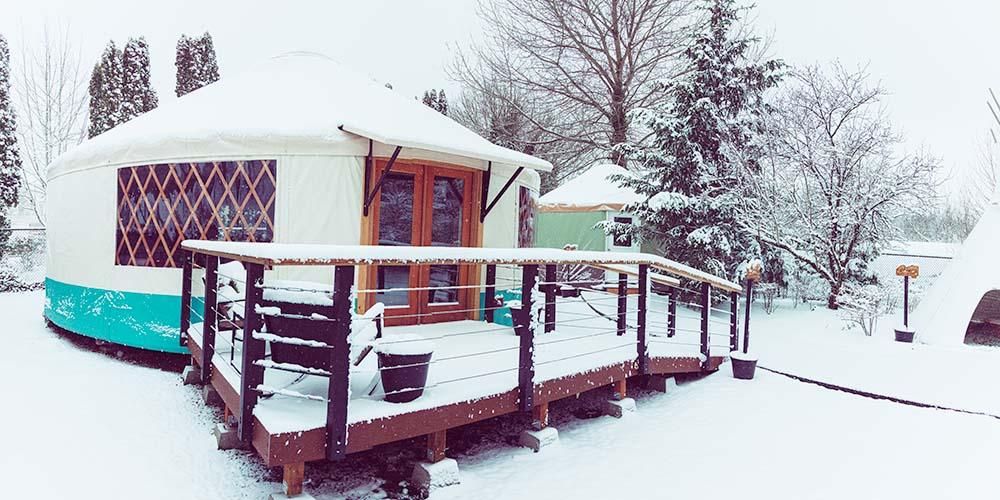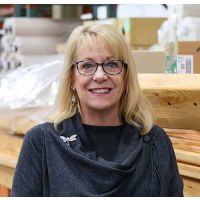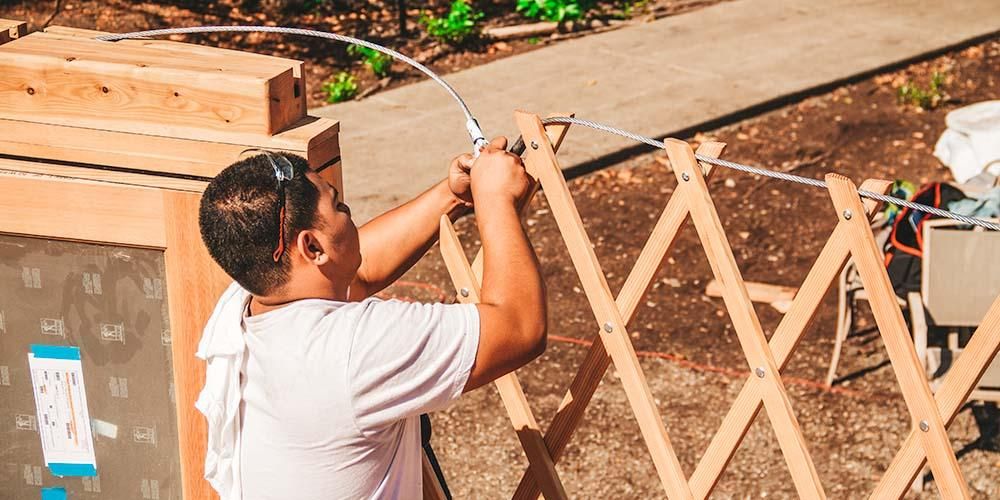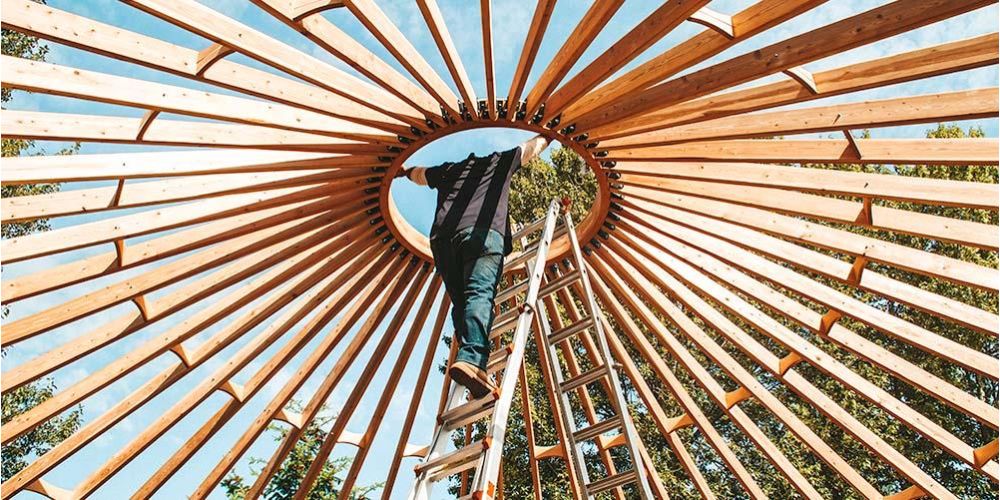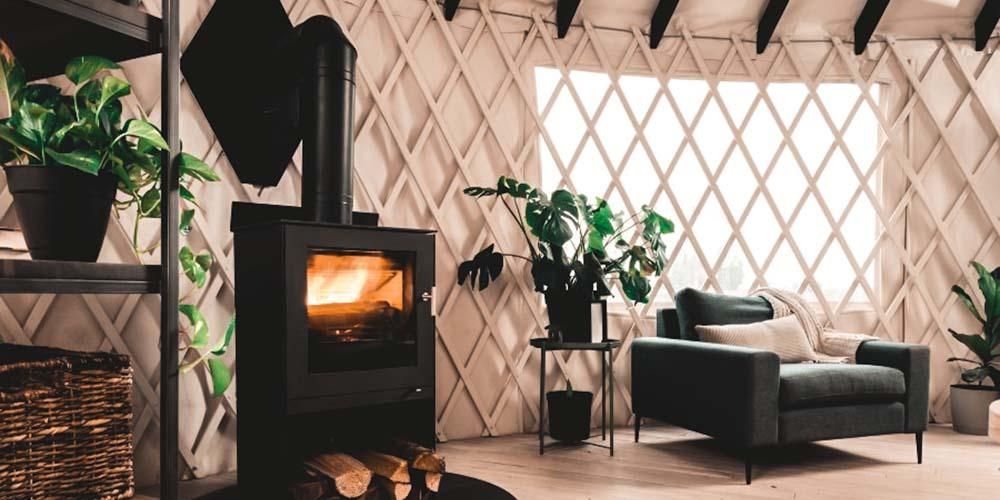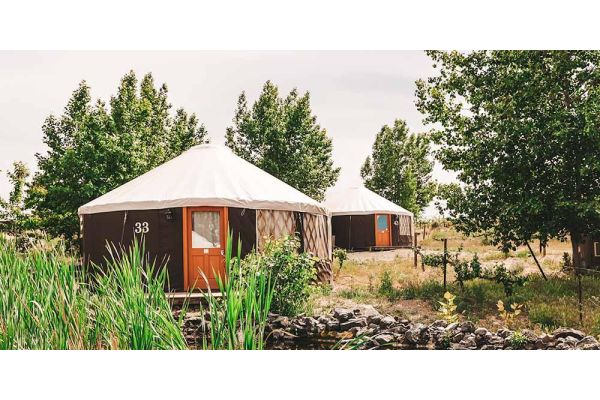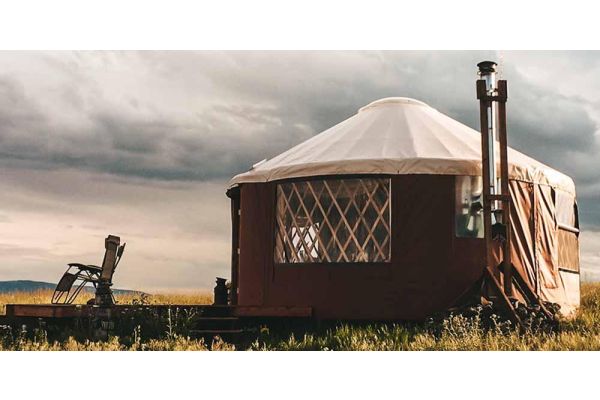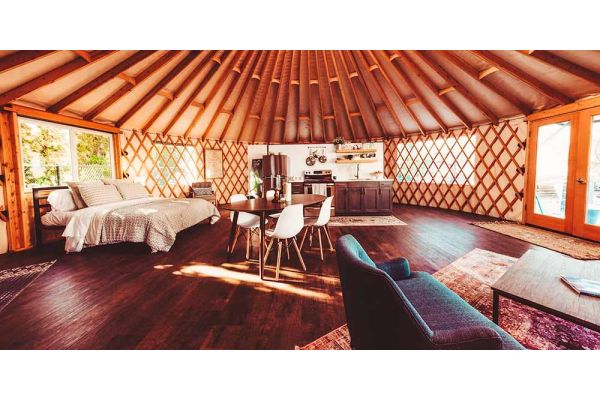Being Friends With The Environment
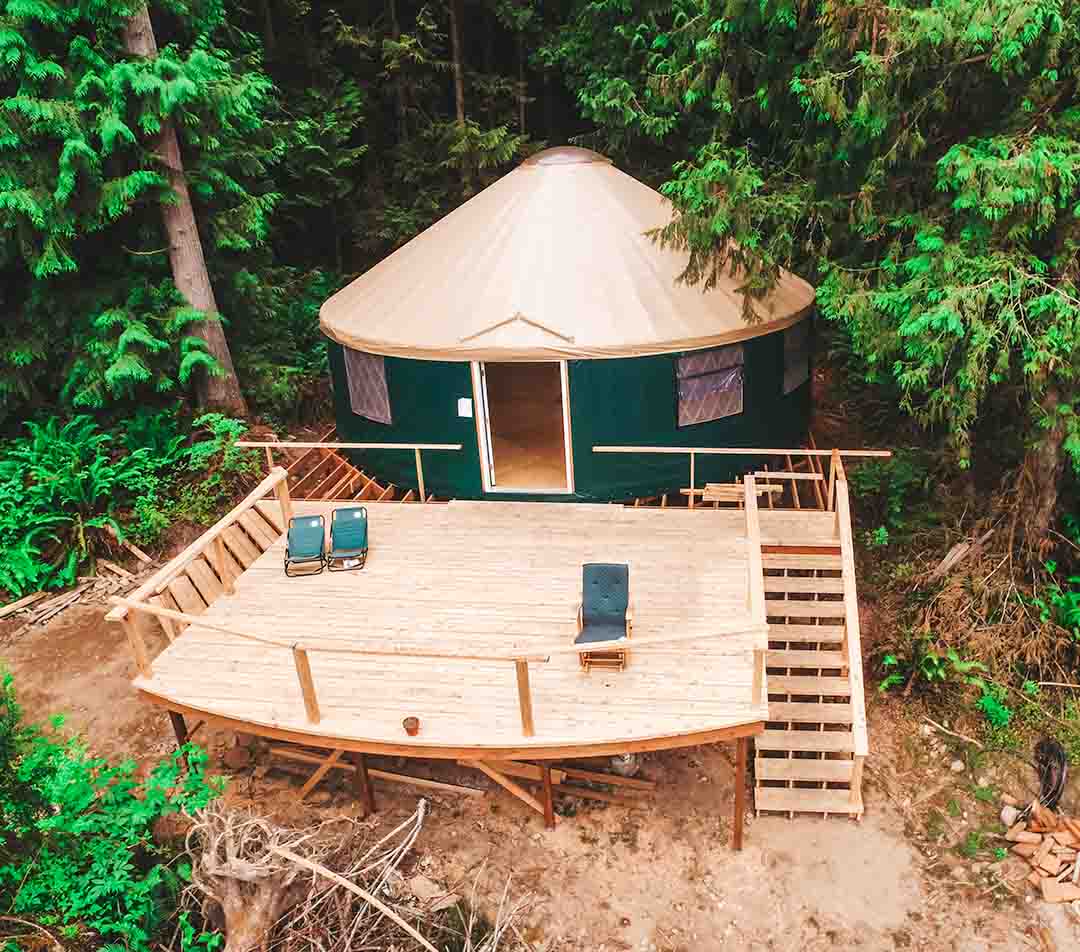

I love getting questions!
Please feel free to e-mail any YURT questions that you have to danah@rainier.com
Donna from Texas asked recently if yurts are chemically friendly.
Dear Donna,
I appreciate your question and your concern about a chemically friendly environment.
In order to conform to the International Building Code, we must meet certain requirements for code and we choose to produce the most appealing, most weatherproof, and most secure yurt available.
Construction requirements for yurt fabrics are stringent to meet our engineering criteria. Having said that, we pride ourselves in setting the bar high for sustainability and achieving high marks for our environmental commitment. With a rich history dating back to the Alaskan Gold Rush in 1896, Rainier continues to break new ground as an industry leader in the area of environmental stewardship.
In 2007, we developed Rainier's Sustainability Initiative and are working toward going green in all aspects of our company, from how we manage our plant to the manufacturing of products, the shipping and installation of our products and ultimately what happens to our products at the end of their useful life. In 2008, we launched a formal Environmental Management System and we became certified in ISO 14001 in May of 2009.
We strive in our daily operations to use environmentally friendly products that will protect our natural resources, reduce our energy consumption, and recycle the bulk of our solid waste. Rainier also encourages employees to be more environmentally sensitive away from work and to do their part in reducing their carbon footprint by using alternative methods of transportation for commuting to and from work.
Rainier is the only yurt manufacturer with a formal Environmental Management System. We are committed to respecting and protecting our environment. We are the only yurt manufacturer that has an established program to recycle your roof fabric at the end of its useful life and we recycle all unused cuts in production.
While we must use vinyl fabrics to achieve mildew repellency and fire retardant certification the acrylic top coating helps to reduce outgasses. We recommend at least a single layer of insulation with every yurt purchase, which creates an aluminum barrier and then the natural canvas (or poly) liner is what is exposed to the inside.
We use 100% cotton army duck in our Eagle Model Yurt. Because this is a natural fabric it absorbs moisture, then dries out naturally, preventing condensation inside your yurt. The Raven uses a more typical, long-life polyester liner. Both fabrics are mildew resistant and flame retardant.
The wood products we use are chosen for their sustainability.
Douglas Fir timberlands are the most productive softwood timberlands in the United States in terms of volume per acre. The northwest region of the U.S. is governed by environmental laws for protection of habitat, watersheds, soils, and biological diversity. Stands of timber in the northwest are managed primarily in natural stands on long rotations.
The many square miles of forests set aside permanently in the National Parks and Wilderness Areas are not a part of the harvestable stand mentioned above. Furthermore, we decline to use any wood products that have formaldehyde in them. All of our wood is then treated with a natural rosewood oil and not a chemical stain.
I sincerely hope that this is what you were looking for in a response. Can I provide you with any more details or information? Are you interested in receiving a brochure in the mail and a materials sample card which has actual cuts of the materials we use? If so, send me your address and I will put one in the mail today.
I look forward to helping you learn more about yurts and the “Round Lifestyle.” Have a wonderful weekend!
Enjoy the journey!
Yurt Sustainability FAQs
Are yurts made from sustainable materials?
Yes, Rainier yurts are made from natural wood and eco-friendly, recyclable fabrics, prioritizing sustainability.
Is the fabric used in yurts chemical-free?
The fabric meets fire safety standards but is designed with low outgassing to minimize chemical exposure.
Is yurt insulation eco-friendly?
Yes, insulation options include natural canvas or poly liners, both eco-conscious choices.
Can yurt materials be recycled?
Rainier Outdoor recycles roof fabrics, ensuring sustainability even at the end of a yurt's lifecycle.
Are sustainable yurts safe for the environment?
Yes, sustainable yurts are built using eco-friendly practices and adhere to environmental safety standards.

